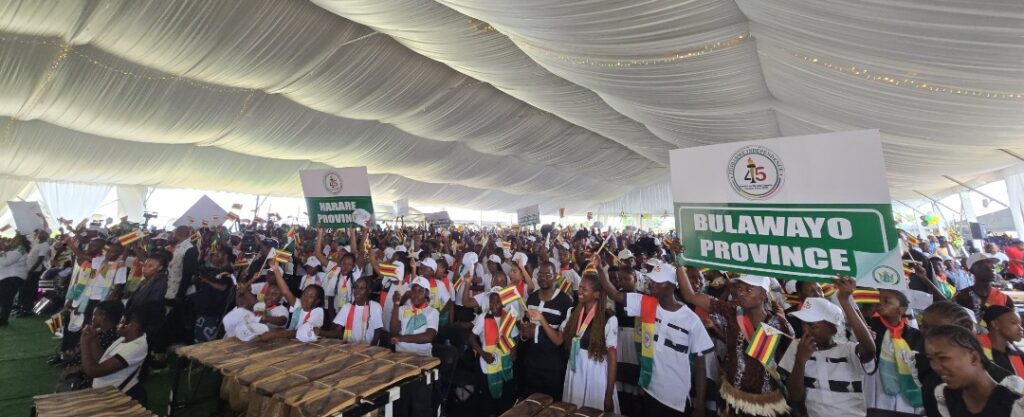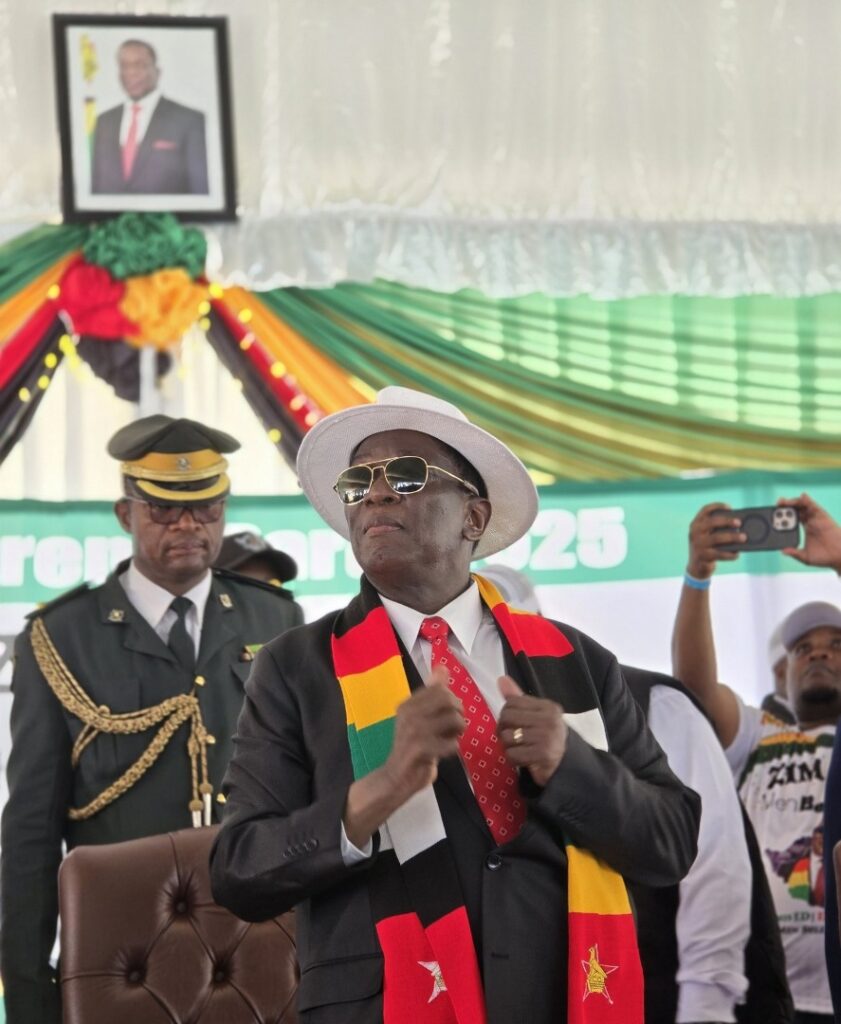By Dumisanin Ndlovu
Harare, Zimbabwe – President Emmerson Mnangagwa’s address at the 2024 Children’s Party provided a comprehensive overview of the government’s efforts to empower young Zimbabweans and build a brighter future for the nation.
The speech, delivered against a backdrop of festive celebrations, served as a platform to highlight progress, acknowledge ongoing challenges, and articulate a clear vision for the future, with a particular focus on aligning youth development with the broader goals of Vision 2030.
A central theme of the President’s address was the critical importance of investing in youth development. He underscored the Zimbabwe Digital Skills Development Programme, a key initiative aimed at equipping 1.5 million young people with essential skills in high-demand fields such as software engineering and data science. Experts believe this program is crucial for preparing the next generation for the rapidly evolving digital economy, allowing Zimbabwe to compete on a global scale.
“The President’s emphasis on digital skills development is commendable,” commented local education specialist, Dr. Thandiwe Mvuma. “These skills are no longer a luxury but a necessity in today’s world. By providing young people with the tools to navigate the digital landscape, the government is setting them up for success in various sectors.”
Beyond digital skills, President Mnangagwa also detailed ongoing efforts to improve the broader education sector. He highlighted the construction of modern classroom blocks, the training of teachers, and the provision of learning materials, all geared towards ensuring that no child is left behind. The promotion of e-teaching and e-learning policies was also emphasized, reflecting a commitment to modernizing the education system and leveraging technology to enhance learning outcomes.
Furthermore, the President stressed the importance of inclusive development, advocating for equal opportunities and access to ICTs for all children, regardless of their geographical location. This commitment to bridging the digital divide is vital for ensuring that rural communities and disadvantaged pupils are not left behind in the nation’s progress. “Equal access to education and technology is paramount for creating a truly equitable society,” noted community development activist, Mr. David Ncube. “The government’s focus on addressing the plight of vulnerable children is a positive step towards achieving this goal.”
The incorporation of cultural heritage into the school curriculum was another key element of the President’s address. By allowing learners to connect with their cultural roots, the government aims to make education more relevant and empower young people to solve community-specific challenges. This approach recognizes the value of indigenous knowledge and its potential to contribute to sustainable development.
President Mnangagwa also lauded the active participation of young people in campaigns related to HIV and AIDS, reproductive health, and climate change. He encouraged continued involvement in development and decision-making processes, recognizing the crucial role that youth play in shaping the future of the nation. Their energy and enthusiasm are seen as vital resources for driving positive change.
However, the President did not shy away from addressing the challenges facing Zimbabwe’s youth. He issued a strong call for young people to reject substance abuse and cyberbullying, emphasizing the need for collective action to combat these issues. He also highlighted the importance of prioritizing the health and well-being of all citizens, particularly school-going children, as a crucial step towards unlocking the country’s economic potential.
“Substance abuse and cyberbullying are serious threats that require a multi-faceted approach,” stated Mrs. Sithembiso Dube, a local social worker. “The President’s call for collective action is crucial. Parents, schools, communities, and the government must work together to protect our young people.”
President Mnangagwa’s address at the Children’s Party offered a hopeful vision for the future of Zimbabwe, one where young people are empowered, educated, and equipped to contribute to the nation’s progress.
The emphasis on digital skills, inclusive development, and cultural heritage, coupled with acknowledgements of the challenges posed by substance abuse and cyberbullying, paints a picture of a government actively working to create a just, equitable, and prosperous nation for all its children. The success of this vision, however, hinges on the effective implementation of these initiatives and the continued collaboration between the government, communities, and the youth themselves.


